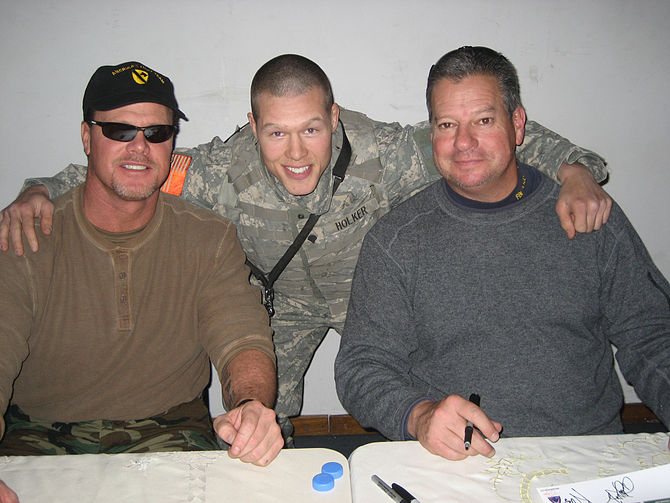In light of the growing body of research and awareness around concussions and traumatic brain injuries in the sports and military arenas – especially as they potentially influence depression, early-onset dementia and long-term memory loss – policymakers are now joining forces with academics and athletes to change how we protect individuals.
In light of the growing body of research and awareness around concussions and traumatic brain injuries in the sports and military arenas – especially as they potentially influence depression, early-onset dementia and long-term memory loss – policymakers are now joining forces with academics and athletes to change how we protect individuals. In Chicago, the Sports Legacy Institute (SLI) and SLI-led initiative the Chicago Concussion Coalition, are educating Chicago Public School coaches, nurses and physical education teachers on how to better protect the city’s student-athletes.
With awareness created from Mr. Nowinski’s SLI, the likes of the biannual #C4CT Summit at the United Nations and President Obama recently hosted an educational summit on the South Lawn of the White House, there is a clear movement committed to concussion research and protecting young brains. While the event at the White House lent federal credibility to the fact that concussions have become a global crisis in our youth and adult sports culture, upcoming efforts by those that have been personally impacted stand to make a bigger difference in the space.
SLI is also focused on innovative prevention programs like the Hit Count® Initiative. “Given that we implement pitch counts at all stages of a baseball player’s career to protect arms, it’s remarkable to think that we never require a hit count or hit sensors to protect brains,” says Chris Nowinski, a former professional WWE wrestler and author of the book Head Games.

Former football stars Jim McMahon and Kevin Butler share a photo with Spc. Aaron Holker. Both players were part of the 1985 Super Bowl Champion Chicago Bears. (Photo credit: Wikipedia)
Not only are tests and certifications becoming possible for sensors that detect hit force, but the stories of those most impacted are becoming mainstream. FormerNFL players are coming forward with lawsuits claiming that information about the severity of damage related to head blows was withheld from them, and others are also speaking out about the vast struggles that have come with traumatic hits, far exceeding the pain and loss associated with physical toll of professional football.
One person is particular, former Chicago Bear Jim McMahon, will be recognized this coming Wednesday in Chicago for his efforts to educate the world about his troubles with concussions and subsequent mental health issues. In a Chicago Tribune article with Fred Mitchell and David Kaplan, McMahon said, “My memory’s pretty much gone. There are a lot of times when I walk into a room and forget why I walked in there.”
To draw more attention to the troubles of athletes young and old, as well as highlight innovation in the concussion space, Chicago’s SLI will be hosting anevent June 18th, with Bob Costas. The goal of the benefit in honor of Jim McMahon, like the President’s efforts, is to draw attention to the topic of brain injuries. The SLI event in Chicago will bring together disparate groups of key stakeholders across complementary sections of the concussion debate with the wherewithal to promote change to health and care policies in the US.
Dedication to advancing the study, treatment and prevention of the effects of brain trauma on our athletes and veterans stands to lead the US to a new frontier in brain protection. The collaboration between Super Bowl XX Championshipplayers, researchers and policymakers could open more doors to protecting our children, athletes and veterans through creating better policies.
English: Minnesota Governor Mark Dayton holds a signing ceremony to raise awareness of youth concussions in sports. He is joined by State Sen. Benson, Rep. Hamilton, and Kayla, who testified on the bill. (Photo credit: Wikipedia)